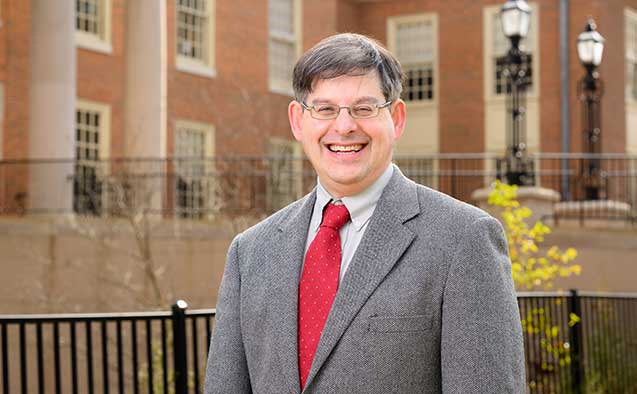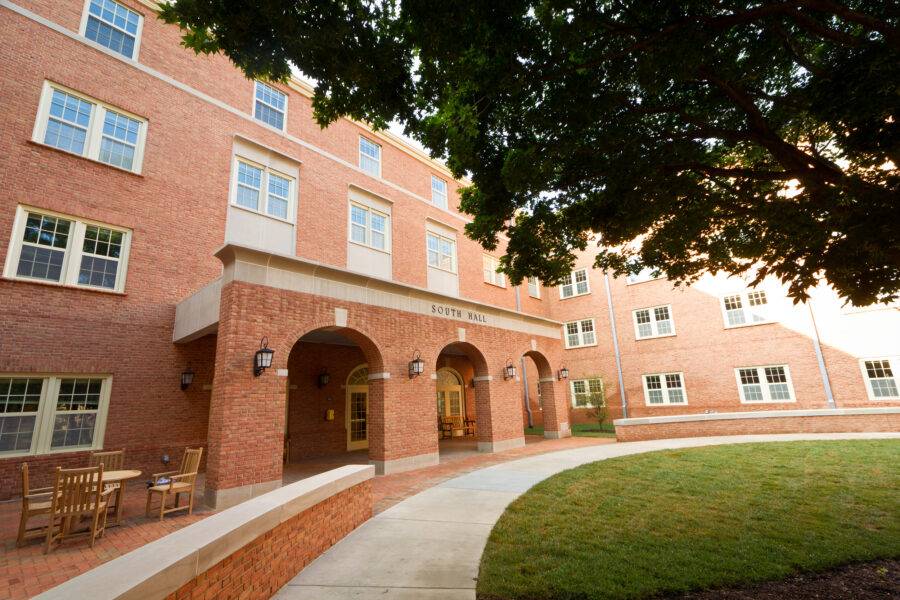History and health care
As part of an innovative bioethics seminar, nine Wake Forest graduate students in the Master of Arts in Bioethics Program recently performed “The Burial Society” — a case study representing the infamous Tuskegee Study of Untreated Syphilis, an experiment conducted by the U.S. Public Heath Service from 1932 to 1972.
“The Burial Society” script is based on research published in James H. Jones’ book, “Bad Blood, The Tuskegee Syphilis Experiment,” which documents the case of researchers who failed to treat sick, African-American men with penicillin after the drug was discovered to be an effective cure for syphilis.
Based on historical statements from the 1942 debate in Macon County, Ala., that resulted in the decision to withhold treatment, “The Burial Society” was performed to a standing-room only audience. The seminar students spoke in the personae of doctors, scientists and study participants and their families, chanting their lines without emotion.
“The performable case study is a ‘literary form’ inspired by Platonic dialogue and designed to promote critical moral reflection on complex issues,” says Richard Robeson, a Wake Forest professor of bioethics. “Any emotions viewers might experience from a presentation of this kind are incidental or coincidental to the stimulus of critical reflection and analysis.”
Since 1988, Robeson and Nancy M. P. King, professor of social sciences and health policy at the Wake Forest School of Medicine, have worked to expand the use of performable case studies as an educational tool in both academic and public bioethics.
“One of the advantages of presenting a case study in this way,” says Robeson, “is that it allows for the consideration of many different perspectives. Every ethical issue worthy of the name is multifaceted, and this method allows us to represent many facets and their interconnectedness.”
“The key component of a case study is that it provoke discussion, understanding and sometimes, action,” says King. “This kind of educational opportunity reminds us all that science is engaged in by society, and that it is the task of all of us to reflect on its purpose and its practice together.”
The performance is part of the University’s effort to engage students, faculty and the community in discussions related to bioethical issues and anticipates a series of lectures and events on the importance of research ethics. First-year undergraduate students were assigned summer readings from Jones’ works, which have led to the development of stronger ethical standards for using human subjects in medical research.
To commemorate the 30th anniversary of the original publication of “Bad Blood: The Tuskegee Syphilis Experiment,” the Wake Forest University Center for Bioethics, Health, & Society is hosting a national Research Ethics Conference on November 10 and 11.
Categories: Happening at Wake, Research & Discovery, University Announcements
Media Contact
Wake Forest News
media@wfu.edu
336.758.5237



